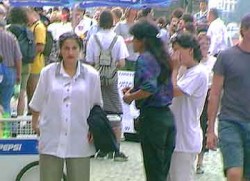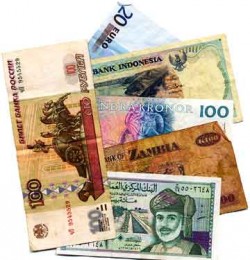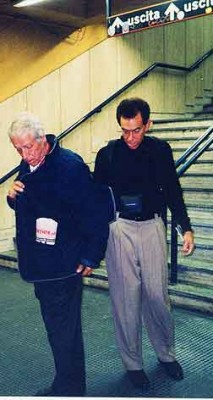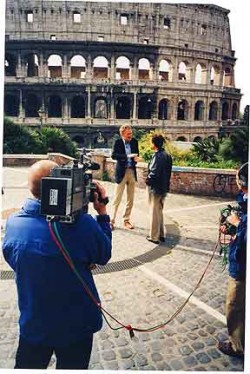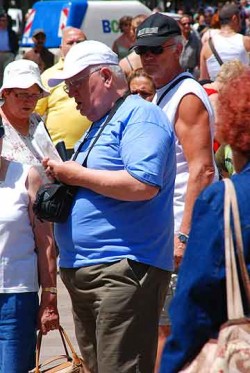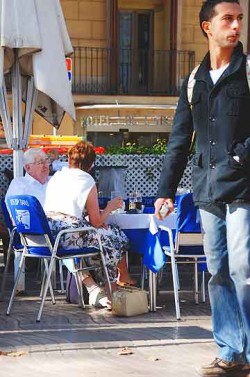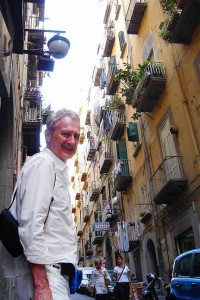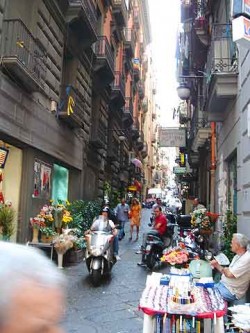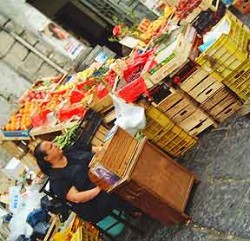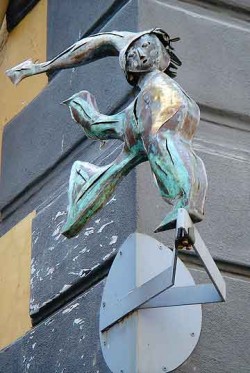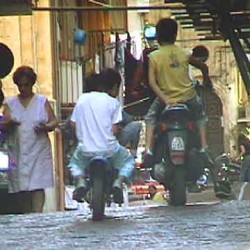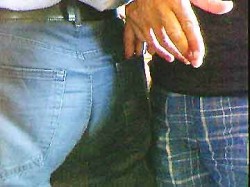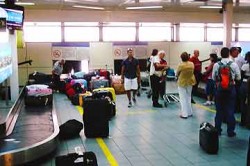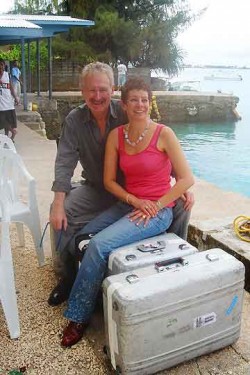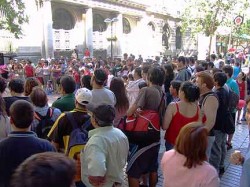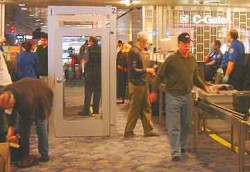
“Did you know you’re wearing mismatched shoes?” a well-dressed Englishman said to our friend, Brooks, at London’s Heathrow airport one day.
Brooks was talking on his phone, frantic at finding out that he was supposed to be at London’s other airport, Gatwick. He locked eyes with the stranger. “I am not!” he said, refusing to be distracted. “And you’ll not succeed in grabbing my briefcase!”
Brooks had become security-obsessed hearing our tales.
“Pardon me, then. But you are.” The man walked away, intentions defeated, whatever they were.
Brooks finished his telephone call, feeling rather smug that he’d thwarted a thief who’d tried to distract him. Then he looked down at his shoes, only to see one tasseled, one buckled loafer.
Everyone knows not to leave bags unattended in airports and, lest we forget, we are relentlessly reminded by annoying announcements. Bag-stealing strategists are devious, though. Even if you aren’t looking away from your things, you may be connived into doing so. Questions by an apparently confused or puzzled foreigner touch our good-natured core and we want to help. A moment’s distraction is all an accomplice requires. Who would suspect that the pretty girl asking to borrow your pen is merely a diversion as her colleagues snag your bag?
Or, here’s a good one: you’re suddenly paged. Who would page you at an airport, possibly a foreign airport, or a stopover? Who even knows you’re there? You rush off to find the white courtesy phone, befuddled and worried. The accented voice on the line sounds unclear, yet urgent. You may be asked to write down a number, requiring some gymnastics while you extract a pen and find a scrap of paper. Have you looked away from your briefcase? Have you lost physical contact with it? Where is it, anyway?
Earlier, the thief had examined the object of his desire, your bag. Its luggage tag informed him of your name. The strategist paged you. He distracted you. He created his own plausible situation. Or, as Bob would say, he created a shituation.
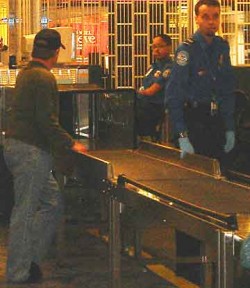
Airports give the illusion of safeness, especially now with increased security. The swirling crowd of dazed travelers, lost or rushed or tired, makes a perfect haystack for the needle-like thief. Your bag might disappear before you even get inside, in all the curbside commotion. Long, tedious, check-in lines can be disorderly madness in some airports, inducing inattention when you need it most.
Computers and purses disappear, too, at airport security checkpoints. Guards have their hands full keeping order at the chaotic bottlenecks, and they’re watching for bigger fish than bag thieves. Don’t assume they’ll safeguard your bags.
Practically every television news program has shown this ruse. The scam occurs just after you’ve put your items on the belt. Before you walk through the metal detector, a stranger cuts in front as if in a hurry. The equipment buzzes and he has to back up and remove his watch, his coins, something. Meanwhile, you’re trapped in limboland and your bags are free-for-all on the so-called secure side.
If you’re traveling with another person, make a habit of this: one person goes through security first and collects her and your bags as they appear. The other waits to see that all bags go fully and safely into the x-ray machine, and watches the belt to see that it isn’t reversed, leaving your items vulnerable on the other side. If you’re alone, wait for any crowd at the checkpoint to pass, if you can, or be alert to anyone who barges in front of you after you’ve let go of your things.
Excerpt from Travel Advisory: How to Avoid Thefts, Cons, and Street Scams
Chapter Three (part-a): Getting There—With all your Marbles
![]()

